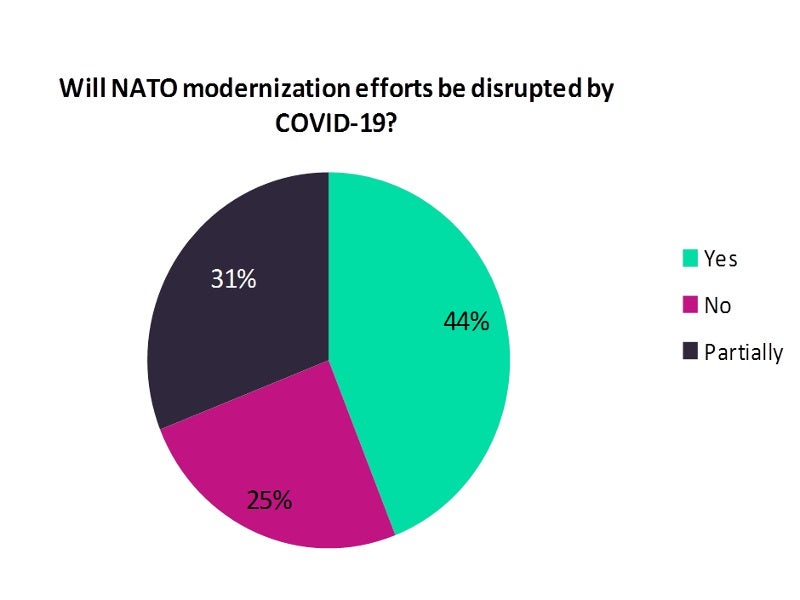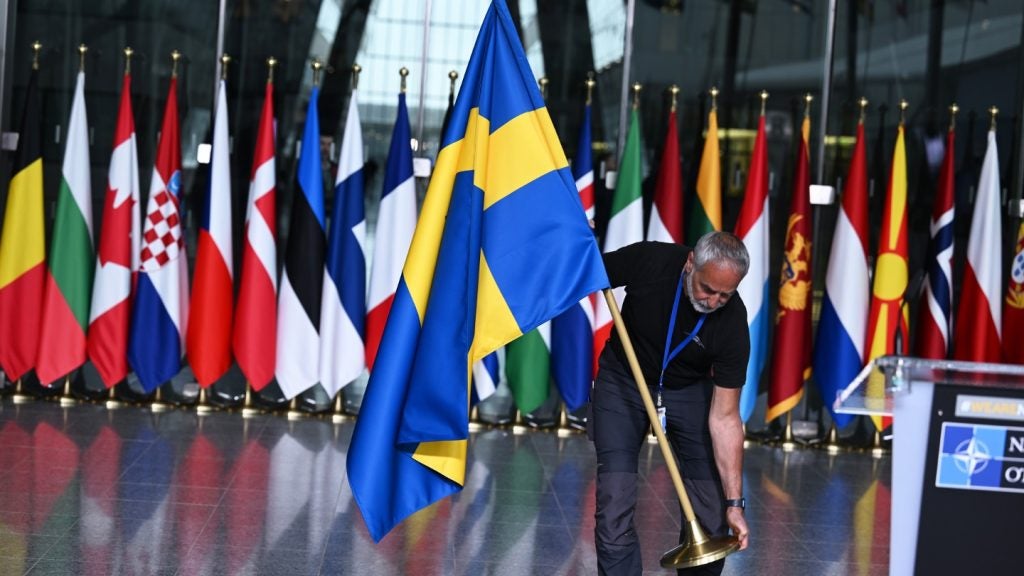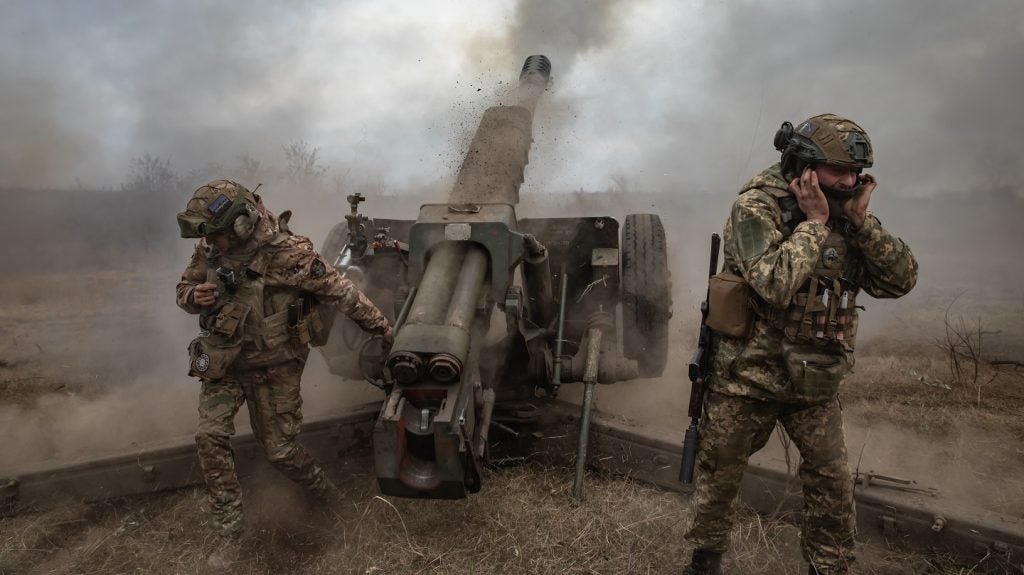The future of NATO’s modernisation plans to upgrade its fleet remain uncertain at a time when aerospace and defence contractors are being affected by the global and local disruptions caused by COVID-19.
Contractors have been forced to shut down manufacturing plants due to lockdown measures, while the grounding of flights has led to uncertainty regarding future orders.
Verdict has conducted a poll to assess whether NATO’s modernisation plans will be disrupted due to the COVID-19 outbreak.
How well do you really know your competitors?
Access the most comprehensive Company Profiles on the market, powered by GlobalData. Save hours of research. Gain competitive edge.

Thank you!
Your download email will arrive shortly
Not ready to buy yet? Download a free sample
We are confident about the unique quality of our Company Profiles. However, we want you to make the most beneficial decision for your business, so we offer a free sample that you can download by submitting the below form
By GlobalDataAnalysis of the results shows that NATO’s modernisation plans may be disrupted due to the pandemic, with a majority 44% of the respondents having voted for the same, while 25% felt that it will not be affected and 31% felt that it will be affected partially.
The percentage of respondents who anticipate at least a partial impact on the modernisation plans stands at 75%.

The analysis is based on 946 responses received between 04 May and 18 May.
Impact of COVID-19 on NATO’s modernisation plans
NATO is currently undertaking several programmes such as the $1bn E-3A Airborne Warning & Control System (AWACS) aircraft modernisation and procurement of the Allied Ground Surveillance (AGS) Global Hawk.
The AWACS was awarded to Boeing, to keep the aircraft in service until 2035. Boeing, however, has been impacted by the COVID-19 lockdown measures. The company has been forced close manufacturing plants possibly delaying the project.
The AGS aircraft are being procured by 15 allies of the NATO, which will maintain it on behalf of the allies.
The first two AGS aircraft were delivered in 2019 by Northrop Grumman, which has warned of potential impact of the COVID-19 outbreak including an increase in borrowing costs and disruptions to customers and operations.
The company was able to weather some of the impacts of the pandemic as sales increased across all business units, according to GlobalData. Operating income, however, has declined, indicating a supply chain disruption which may impact the company’s deliveries including the AGS aircraft.
NATO’s other procurement programmes such as the Multinational Multi-Role Tanker and Transport Fleet (MMF) has remained unaffected as the first two aircraft are scheduled to arrive in June.
Although NATO Secretary General Jens Stoltenberg has urged allies to keep up defence expenditure, experts such as Robert Baines, president and chief executive officer of the NATO Association of Canada, noted that the ability to justify large procurement projects will become harder due to the economic turmoil caused by the pandemic, as quoted by CBC News.








